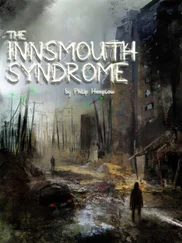“I wasn’t speaking of science, Bob. I was speaking of you and Dr. Van Dorn. It was you who made the decision to enlarge the pilot to the entire Ratliff water district — exempting Fedville. And it was your colleague Van Dorn who used the additive on the students at Belle Ame for purposes of the sexual gratification of himself and his senior staff—”
“Hold it, Doctor!” Bob Comeaux now stands against the door, hands behind him on the knob. He has entirely recovered, not only himself and his old assurance, but his old anger. “Hear this, Doctor. In the first place, I put my money where my mouth was. I sanctioned a dosage of additive for my own son — and hear this: he is doing brilliantly. And finally, Doctor, you know damn well I’m not responsible for Van Dorn’s behavior. But apparently this is the way you want it.” From his pocket he takes a paper, slowly tears it once, and again, drops it into my student waste- basket. “That was your release. After what you pulled at Belle Ame this morning, what is going to happen is that we’re packing your ass right back to Alabama. I’m sorry, Doctor. I came up here to get you out of here. I had the door open. I did everything but pull you out bodily. Max,” he says.
I look at Max.
Max is standing over me, hands deep in his pockets, staring down at the curled-up toes of his Thorn McAns. “He can do it,” says Max softly. “Look, Tom. Here’s what’s let’s do. Why don’t you — and I’m sure Bob here would accept this — why don’t you and Ellen— Look, there’s no reason to, ah, go to Alabama — instead, why don’t you and Ellen do what I’ve been trying to get you to do, move down to Mandeville, into Beau Rivage with us — there’s a condo on 12 just below us available — and I need a partner — I’m tired of clinical work, want some time for writing. You know we always did well together, especially in group. I know you’ve had some problems, ah, at home, that is, adjusting. Tom, we could do well together, and economically too—” He breaks off suddenly, eyes widening.
While Max is talking I’m spreading the Belle Ame photos on the floor, plus Lucy’s printouts and graphics from the NIH and Public Health mainframe in Baton Rouge and the local Fedvile data bank showing not only the distribution of Louisianians dosed up on Na-24—the starry galaxy over Feliciana — but the procurement order from Fedville, signed by Dr. Comeaux, exempting Fedville from the Ratliff water district and ordering a second intake upstream from Ratliff. The photographs, I can’t help but notice again, exhibit the same Victorian propriety, the decorous expressions, every hair in place, bobbed in the women, old-fashioned 1930s high haircuts in the men, a British sort of nakedness, white-as-white skins and vulnerable backs, unlike tan-all-over U.S. California nakedness, and the children above all: simpering, prudish, but, most of all, pleased. It is the proper pleased children—
For a while both Max and Bob gaze, at first politely, heads aslant, as people will attend to other people’s photos. Max’s cheek is even propped reflectively on three fingers.
In my clinical voice — doctor showing slides at a medical conference — I explain the exemption of Fedville from treated water, the sodium-additive arrangement, the presenting behavior of Mrs. Cheney, the anal lesions of this child, her curious linguistic regression, the extraordinary I.Q. of that child — not omitting Ricky’s perfect score in Concentration.
“Ricky?” says Bob, not comprehending.
“Ricky is all right, Bob. He’s at Lucy’s house.”
“What?” says Bob. “Ricky?”
“I understood you wanted to have him in the program, Bob.”
“Yeah, but at first-level minimum dosage, to improve his — he was flunking math — Jesus, they didn’t — Is he all right?”
“He’s fine. He’s not injured. He’s with Claude at Lucy’s house. You can pick him up any time.”
“Thank God,” says Bob. “Thanks, Tom.”
“That’s okay, Bob. He’s with Claude at Lucy’s house.”
“Jesus,” says Bob.
Max seems not to be listening. His attention seems to be caught by one photograph, the one depicting Van Dorn supine, bearing the child aloft and impaled between his knees, the child’s expression, demure, as pleased as if she had just won the spelling bee, legs kicking up happily. The child is facing the camera and therefore appears to be looking at the viewer of the photograph.
As Max examines the photographs he falls into an old habit, hissing a tune between tip of tongue and teeth, which I remember him doing as house physician standing with a patient’s chart in the nurses’ station — a sinister, amiable hissing, the attending intern casting about: How did I screw up this time?
Max is also nodding in his old abstracted way. “So,” he says to no one.
Bob Comeaux has come alongside, head medically-comradely aslant, like the attending physician co-inspecting an X-ray with the chief on grand rounds. He too is nodding, hands in pockets, upper lip folded against his teeth.
“Bob,” he says in his old ominous-gentle, grand-rounds voice, head back, looking along his cheek. “Just what are we doing here?”
Bob is clucking back-of-tongue-from-teeth tck tck tck meditatively, resident considering case: it’s amazing how everything you do, even late in life, you did in school.
Silence, except for the spirituals.
“What are we doing here?” Max asks again.
“We are listening to the darkies singing,” I say.
“All I can say is this,” says Bob Comeaux. He’s squinting into the afternoon sunlight, hat in his hands, head leaning back against the jamb. “I don’t know about those, whatever they are”—he nods toward, without quite looking at, the photographs—“but I will say this, you try the best you can to help folks. And what do you get? I’ll tell you what you get. You get the same thing Lister got, Galileo got, Pasteur got. Ridicule. Did that son of a bitch use Ricky?” he asks in a different voice.
“Ricky’s okay, Bob.”
Silence, except for the singing.
I looked over Jordan and what did I see,
Coming for to carry me home.
A band of angels coming after me,
Coming for to carry me home.
“Don’t tell me that’s not beautiful,” says Bob absently.
“Right, Bob,” I say. “Now here’s what we ought to do.” I exchange glances with Max — one of our “group” glances. We understand each other. We know something movies and TV don’t know. Here’s where movies and TV go wrong. You don’t shoot X for what he did to Y, even though he deserves shooting. You allow X a way out so he can help Y. X is going to have enough trouble as it is. Max already recognizes a tone in my voice, the clinical-helper voice of the “resource person” in group therapy. He and I have run many a group. It’s like two cops playing tough cop and softy cop.
“What’s that, Doctor?” asks Max in his tough cop voice.
“This is just an idea to kick around. I was thinking: Now that Blue Boy is closed down, wouldn’t it make sense to use the NIH discretionary funds and the Ford money to help Father Smith reactivate the hospice? The good Father is a nut, as we all know, but his place can be useful as a facility for your terminal cases — for one thing, save you an awful lot of money. He’s going to need all the help we can give him. I’m thinking of giving him a couple of afternoons a week.” Group strategy: Don’t shoot Bob Comeaux, use him.
We all appear to consider.
“Well, I don’t know,” muses Max, who is just beginning to grasp what has happened, is astounded, and is not showing it.
Bob Comeaux, still martyred, eyes still closed elegiacally, is actually attending closely. He almost nods.
Читать дальше












